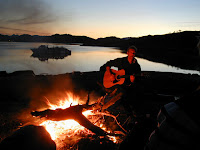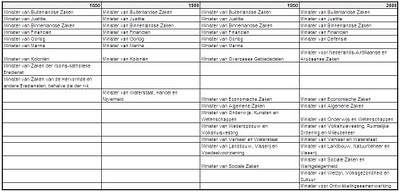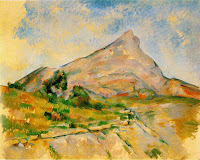It happened to me three times. What? THAT what Plotinus calls: lifted out of the body into myself and beholding marvellous beauty. And afterwards the wonder what happened. The moment of descending.
Plotinus (around 204/5–270) in his Enneads (
IV,8,1): "
Many times it has happened: Lifted out of the body into myself; becoming external to all other things and self-encentered; beholding a marvellous beauty; then, more than ever, assured of community with the loftiest order; enacting the noblest life, acquiring identity with the divine; stationing within It by having attained that activity; poised above whatsoever within the Intellectual is less than the Supreme: yet, there comes the moment of descent from intellection to reasoning, and after that sojourn in the divine, I ask myself how it happens that I can now be descending (...)."
In this blog I'll share with you my first moment of becoming One with the Universe. I wrote on my second moment of
enlightenment in my blog '
Aswan. April 3th 1987'. Someday I'll share with you my third moment too. My observation on my 3 moments. They all happened abroad, in hills and near other people. The days before I always felt that another moment was coming soon. In a way I felt pregnant with Love and Light.
Here is the report of the first. I originally wrote it in Dutch. For me my own translation in English feels terrible but it's the only way to share it with you.
Enlightenment ? in Poland
A frail wind blows in April. In the year of the Lord 1984. The farming landscape is hilly and green. Here and there capricious rocks. We are riding in a bus. On both sides of the road little houses which seem to me “out-of-date”. These houses seem to me little farmhouses. They look to me going to ruin, grey and dirty. These ruins are surrounded by dried up mudpools in which chicken freely walk around.
The bus in which I sit has just set itself free from the air which is so characteristic of the mining-area of Katowiche in Poland. The air appears to be dangerous and unhealthy but to me it just smells very well.
I undergo the change of colour and the change of smell. The change of a landscape full of soot-blackened flats to a green farming hilly landscape. And the change of the smell of pit-coal to “no-smell-at-all”. I get the feeling that I’m going back in time. Poland with it’s houses and people look to The Netherlands - as I am acquainted with photographs – in the ’50 of the 20th century.
The bus stops in Czestochowa. A little village in the country. I leave the bus together with my travelling mates. Through a street, which is surrouned by high stone walls, we mount to the church we travelled for. The church, the domain in the ring of stones, is the sanctuary of the black madonna. The black madonna is a Maria with a black face who is worshiped for her legendary tears – and the power which is derived from those tears I presume? She is worshipped by the desperate people from Poland in order to make life in ‘hic et nunc’ (english ‘here en now’) more bearable.
I’m a bit surprised by the huge amount of people who attend mass. The church is crowded, Very crowded. Outside still people gathering, trying to see a glimpse of the archbishop Glemmp. I’m watching it all. All those people sitting on lot of stairs. It’s as if the church cracks down by the amount of people inside it. I’m still able to walk and look at the interior of the church. I’m astonished by the calmness and resignation of the crowd of people. No one in a hurry. No one pushing. So much resignation. It’s so different than the intrusive, meddlesome and careless people of The Netherlands.
Surprised by all that I sat down on a stair, between human beings. I closed the sleaves of my long trenchcoat. Put my hands deep in the pockets of my coat. I’m getting warmer already. The scraf of wool pricks pleasantly. The scarf smells well. Suddenly, at once, I feel …! (I would better say no more.) A feeling of peace. Tolerance of me against the rest of humanity. At once I feel accepted and one with all human beings. I feel as a human being like everybody else. I feel made up out of humanity … A couple of minutes I feel un-explainable quiet and happy with a deepness I never experienced before … A couple of days the feeling burnt deep in me. I wanted to become a priest or a monk in order to propagate my enlightenment. But – as allways – time heeled the urge as if it were a wound.
I. I don’t believe in God. At least not in the God of the bible: a sort of Santa Claus who will dry up all earthly-tears, after-the-dead, in paradise. Often. Very often I’ve asked: who, what and where is God? No one wanted or better no one could give an answer to my questions. You had to believe. And I, Dutch product of anti-fasicism, could not accept the Truth without exception. I always believed with some reserve. Those reservations caused that I rejected the believe in a God of the bible. Now the believe of the God of the bible or the believe of a fascist state (which will last 1.000 years) or whatever is placed in the ‘collection of believes’. God (mono-theism) or gods (poly-theism) are a creation of groups of people. The God of the bible is no longer unique to me. As the singer Chris Rea says: “They teach us to swim but they don’t talk about the danger. They tell you the truth but they never say why.”
The Truth and The God do not exist. What exist are: truths and gods. Both only exist in plural.











































